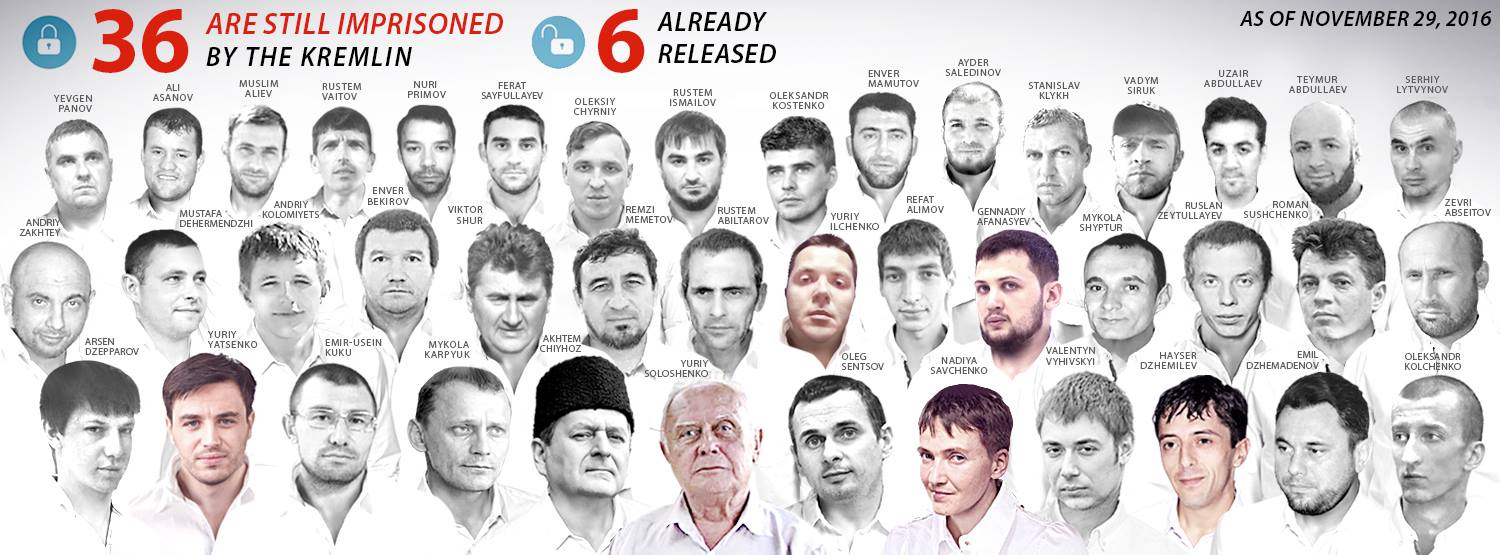Sarah Jennings is a 52-year-old volunteer from California. She was interested to see the situation in Ukraine for herself, which is why she joined GoCamp initiative. As a destination she chose eastern Ukraine. She volunteered in the towns Chervoniy Donets and Pokrovsk in Donetsk Oblast: “I had been watching Ukraine since Maidan. And here in San Diego we have a large Ukrainian population. I saw that there are problems and people needed help getting aid into the east.”
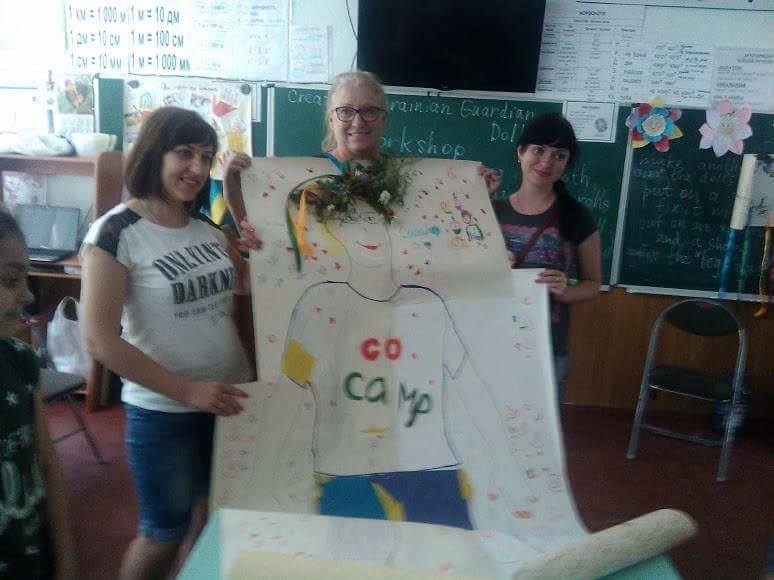
In her career, Sarah worked in accounting, quality control, and investigation. Also she has a big experience in training people, including first aid training courses.
Unlike many other foreigners, the woman was not concerned whether going to the front line regions is dangerous. Starting from 2008, she spent three and a half years in conflict zones – in Iraq and Afghanistan: “My job was to take care of the soldiers and while I was there a part of my job was to take care of the Afghans. We had over 10,000 Afghan employees.”
In Afghanistan, Sarah worked at places which were attacked with rockets almost every day, some of her employees were killed. Coming to Ukraine, she had no expectations, but her family and friends did:
“When you go to places that people think are dangerous, you can tell people the truth about it. A lot of my friends and family were afraid for me to go to Ukraine, because everything in our news was about eastern Ukraine and the fighting. But I was not afraid and if there is fighting I would deal with it.”
Instead, the women saw that people are trying get their lives back to normal:
“Not every day is about being afraid. There are people going to work, children going to school. It was very encouraging coming home and saying that people in Ukraine are fine. The children are so excited for all these people coming from different places to talk to them,” says Sarah and adds that there were even some things which surprised her:
“I found that even folks who missed Russia didn’t hate me for being American. I found that everywhere where I’ve gone, where I might be a little worried how people may treat Americans, people were really great.”
Read also: Would you volunteer teaching English to Ukrainian kids?
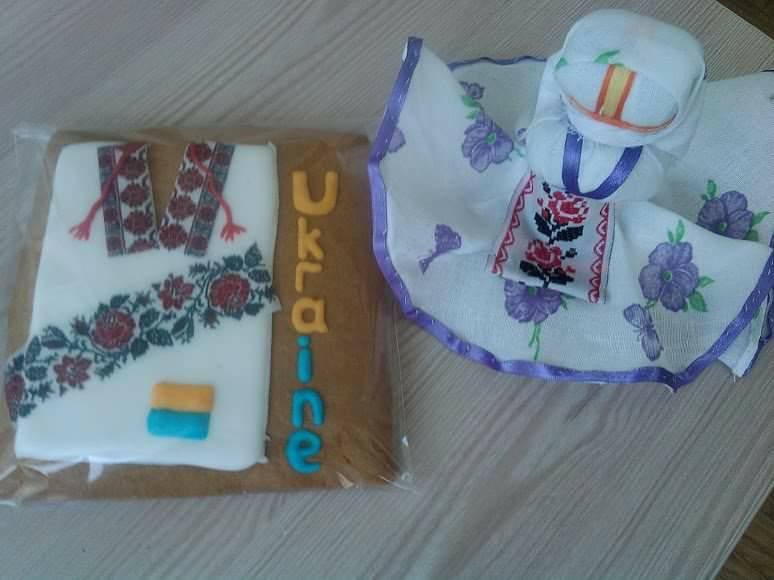
Being a volunteer in small cities made Sarah feel like a celebrity: “30 thousand people knew you were coming because you were in a newspaper before you even get there. And everyone is looking for the American who is coming to visit.”
Sarah was the only GoCamp volunteer in towns she worked, but in her activities she was always assisted with local English teachers. She stayed in their families. Her responsibility was to work in a team with the teachers. The camps were located in schools. The women also set a task for herself – to break stereotypes about teaching:
“I think the biggest thing I brought to both camps is being spontaneous. From the teachers I talked to, I understood that when they taught in the past, every pupil's paper had to look the same. All the answers and pictures had to be the same. I was happy to say: this is summer school, this is fun. It is not about being perfect, it’s about wanting to try.”
She also showed that everything around can become a lesson. For example, they found a big bug. Sarah picked it up, took it to the class and suggested to turn it into a lesson: “I wrote questions on the board: What kind of bug is this? Where do they live? What do they eat? What countries do they come from? Let's build a little terrarium and keep it as a pet. How are we gonna name it?”
The volunteer together with local teachers created a lesson where kids should have been detectives, creating their own magic story and acting it out, pretending that they are going to a grocery store. Once she even organized a day when everyone should have come in clothes which don’t match: “All the kids brought their clothes in bags, but I was the only one who came in these clothes from home, like an idiot. But I had to be the idiot because I was a volunteer.”
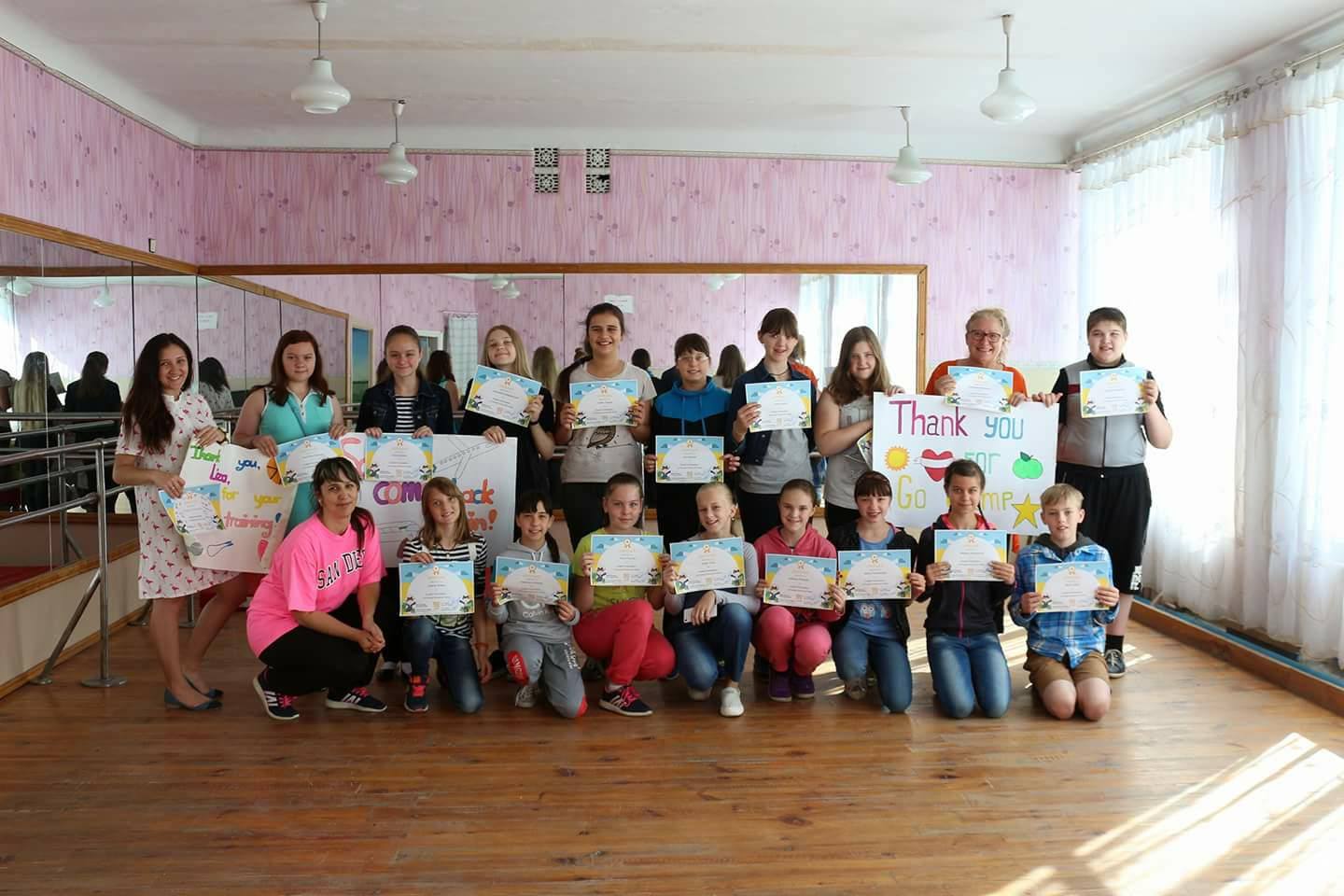
Sarah is still friends with teachers with whom she worked with and says that majority of them were open to change their attitude to teaching. And she sees one of the main contributions of the volunteers from different countries coming to Ukraine as showing the teachers that being spontaneous is fine.
In terms of English, Sarah recommends to teachers and volunteers just to find any opportunities to make kids speak the language: “One of the things that I found frustrating that kids learn about present, past or simple tense, they know how to do tests, but they don't know how to talk the way that we do in English.”
Sarah used to pay special attention to the kids who seemed alone and for whom it was difficult to join the group:
“Part of what I am doing in activity is to actually trying make those children integrate better into the group. So I don't allow the groups that are together all the time to sit together in a class. I put everybody in mixed groups. I put the kids who know English very well and I pair them up with the kids who don't know English that well. And I would like to see the kids who know English well to become junior leaders in GoGlobal in the future. I think it would be great for schools that don't get volunteers.”
Troubles did happen to Sarah in Ukraine. She broke her feet. Ironically, it happened when she came from eastern Ukraine to Kyiv for an event. The incident took place when she was doing rope jumping. So she had to interrupt her volunteering mission and to come back home.
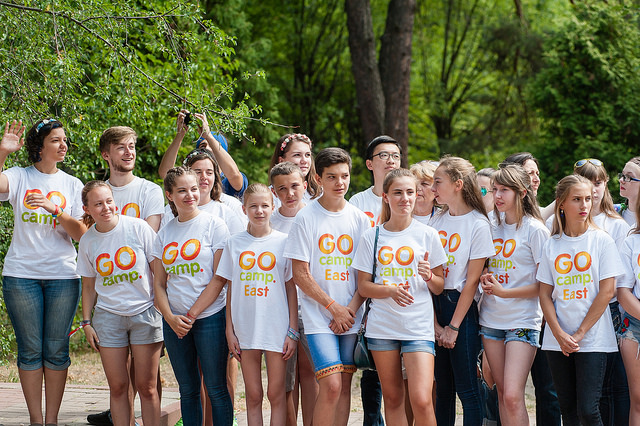
The women hope that she will have an opportunity to join the GoCamp initiative next year. Now she recommends it to her friends and even persuaded her daughters to come. The only condition she gave them is that they should earn the money for tickets to Ukraine by themselves.
“Volunteering creates a lot of opportunities. When you go to a job you are not always yourself, you have your work personality. And the nice thing about being a volunteer is that you can be yourself and being around the kids and you can laugh and you can play. And that was nice to be around the kids and I did not need to be super responsible one,” says Sarah.
She also assumes that the main benefit for the kids from the program is an opportunity to meet real people from countries that they only read about or saw on TV:
“I think it's also good for them to realize that not every country is as good as it sounds. We don't have the war, but we still have the same problems. To show them that just like in your country if you work hard and you try hard and you don't give up just because something is hard you can become part of the whole solution to make it better. It was really fun because we don't talk to the kids about politics. And it’s the kids that were asking me questions. The biggest thing one could bring to them is the message: always keep trying, it’s never perfect, but it becomes better.”
According to Sarah, the drawback of volunteering in Ukraine might be becoming 20 pounds heavier because every family you meet is trying to feed you.
The women also sees a need to show volunteers from other countries that Ukraine is safe, not like it used to be presented in the news: “It's important to show how beautiful it is. I love Odesa. People here do not know that you can actually take a ferry from Ukraine and to go to Türkiye. So much about your country that we don't know and people should know.”





